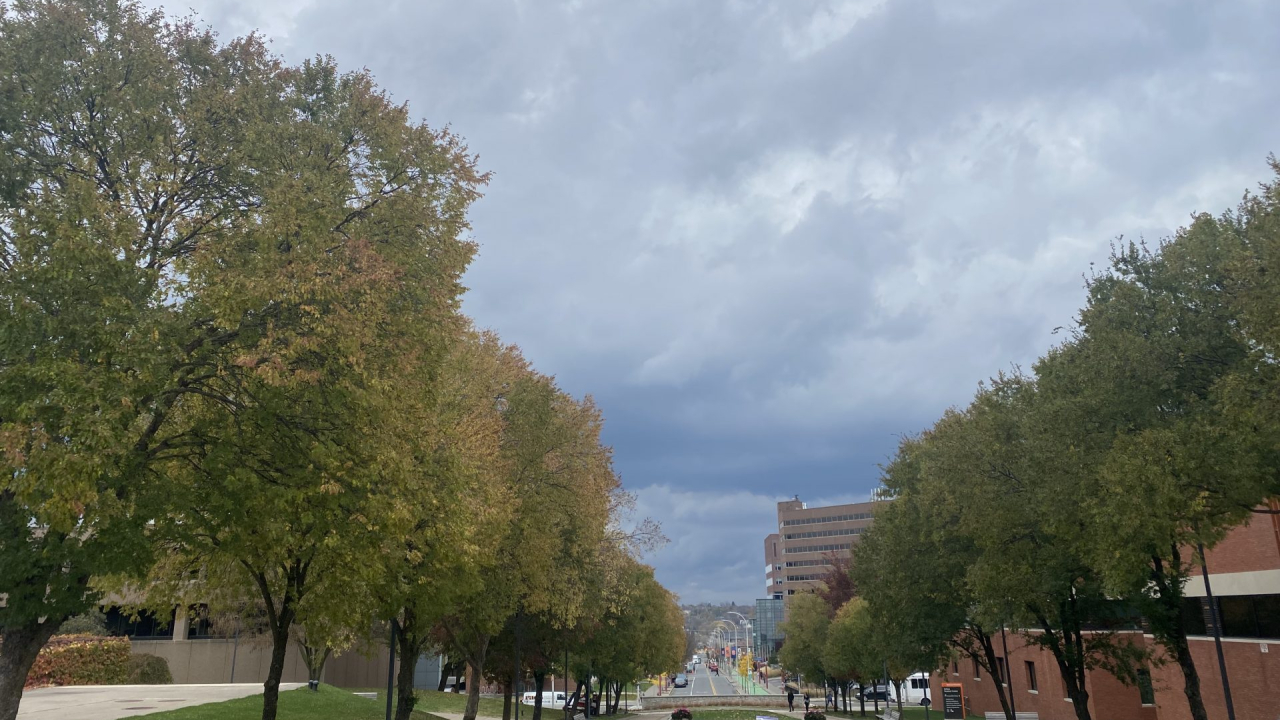
SYRACUSE, N.Y. (NCC NEWS) — Spring forward and fall back. On November 5, Daylight Saving Time had its yearly end. Clocks turned back an hour, which now makes the sun set before 5 PM, giving Central New Yorkers a disadvantage to sunlight exposure.
In the spring, when Daylight Saving Time begins, it is known to affect physical health. Car accidents increase and heart attacks are more common, which has been linked to the hour of sleep that is lost when the clock jumps from 1 AM to 3 AM. In the fall, when an hour is added to rest, the health affects do not seem as immediate and they practically look like they don’t exist. But the effects of the end of Daylight Saving Time develops over time, especially in the winter months of the cold, snowy Central New York.
The average workday in America is 9 AM to 5 PM. In the winter months, the average Central New York employee would miss the sunlight if the sun was even out. According to climatemps.com, the average sunlight hours per day in November, December, and January are 2:36 in Syracuse.
“If it’s four o’clock and I’m sitting in my room studying and the sun is going down and I look back up and it’s five when the sun is down and it is dark, I want to go to sleep, I want to be done with my day,” said Syracuse University junior Stella Balaskas.
Like many, Balaskas starts to feel less like herself as the cold comes in and is not too sure why. The reason sunlight exposure is so crucial is because being in the sun creates serotonin, or more commonly known as a ‘happiness chemical’.
Serotonin is a neurotransmitter which regulates hunger, mood, and especially sleep. While the oven, car, and microwave clocks were changed this weekend, doctor’s say human’s bodies function on their internal clock, or circadian rhythm. This tells one’s body when to sleep, for how long, and how well. Though studies show the extra hour of sleep doesn’t make us healthier since it is just about the same as the amount of sleep most people get on a daily basis, the effect lies within the sun over time.
“I love it being sunny outside, I think it makes me more productive when the weather is nice outside, it makes me want to get my stuff done so I can get outside and be in the sun or enjoy my time in the sun,” said Balaskas.
The lack of sunlight that Daylight Saving Time ending permits is at the root of the winter blues or seasonal depression. Central New York sees such little sunlight to begin with in the winter and the early setting time affects the mental health of Central New Yorkers overtime.
To combat the winter blues, exercise is recommended as well as a balanced diet. For more information on mental health resources in Onondaga County, visit http://www.ongov.net/mentalhealth/.




